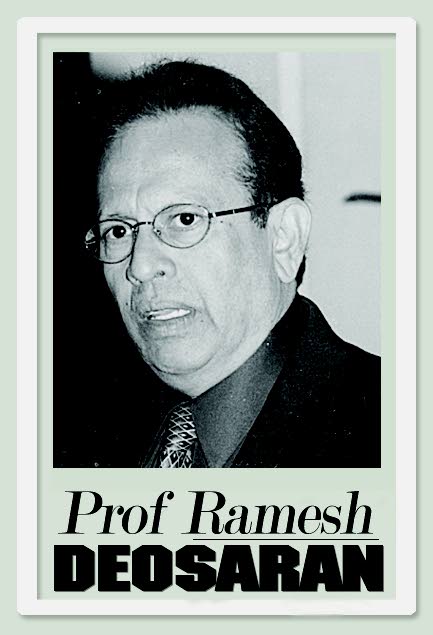Criminaloids in politics

Criminaloids. Searching for an appropriate definition for elusive white-collar criminals, criminologist Prof DO Friedrichs in 1966 described “criminaloids” as “businessmen who commit exploitative acts of an uninhibited desire to maximize profit, all the while hiding behind a facade of respectability and piety.” This narrow view followed extensive attention since the early 1920s over white-collar crimes in business and politics, and worse, when business interests connive with politicians.
The popular, very cryptic definition today is when a person uses “public office for private gain.” Notably, except for Opposition MP Dr Roodal Moonilal, there was little or no mention of white-collar crime in the recent Lower House budget debate. And surprisingly so, since these high-level crimes have long been on the country’s front burner, including the police commissioner’s pledge to “go after such alleged offenders.” Prof Friedrichs’ use of the term “criminaloids” implied that white-collar criminals move like greed-driven robots – no feelings, no guilt about whom they harm or about costs to the company or tax-paying society.
Moonilal raised two white-collar issues: he called for an investigation into NCB Global Finance and its transactions with Government, alleging during the debate that the private company gained financial advantages while its CEO is the brother of a sitting minister. Referring to the $300 million passport kiosks contract given to Novo Technologies Inc, Moonilal questioned National Security Minister Stuart Young on procurement, continued financial obligations and ministerial oversight of the contract award.
Young replied that while the Government appointed a probe on the legality of the contract, “that was no indictment” on Works and Transport Minister Rohan Sinanan. Moonilal noted that since ministers must dutifully receive minutes and related documents from all state boards to ensure continuous oversight of expenditures, especially in this case of a $300 million contract, Minister Sinanan should be held accountable. The company objected to the minister’s reasons for the probe.
Such parliamentary exchanges find context in the Prime Minister’s repeated concerns over corruption and the need for whistleblowers. During recent debates, especially on the Asset Recovery and Unexplained Wealth Bill and Whistle Blower Bill, Dr Rowley condemned the “corrupt culture” in the society and the need “to clean it up” no matter who. The population itself has grown demoralised by political corruption, especially by those who, pretending to be “respectable and caring for the society,” shamelessly circumvent the law. This, while every manifesto promises public morality.
In fact, it was Dr Eric Williams at Woodford Square in 1955, who argued for “honest” party politics when he declared: “The dishonesty and immorality of political life in TT is now a byword. The population is tired of graft and corruption, sick to death of broken promises, fed up to the teeth. The situation daily gets worse.” Indeed.
Like then, political corruption today seems to enjoy partisan immunity. Williams, as chief minister, then prime minister, became helplessly seduced by the wiles and newscarrying of John O’Halloran and Francis Prevatt. Today, a tired, fed-up population awaits, in the first place, the cleansing intervention of the Prime Minister and Opposition Leader. Such leaders must learn to bite the bullet when the country’s reputation is at stake.
The scholarly consensus states: “White-collar crime constitutes illegal or unethical acts of deception committed by an individual or organization by persons of high or respectable social status if that violates public trust.” The prosecution and research literature on white collar crime indicates that while an act may be legal, it can still be defined as corrupt. In fact, the law can be tactfully used to protect corruption.
White-collar crime in this country faces several challenges, five are:
1. The difficulty in getting reliable evidence, since white-collar crimes involve two or more persons who secretly give and share corrupted benefits.
2. Such crimes are also committed by blue-collar types singly or in alliance with high-status criminaloids.
3. The distinction between the illegality of an act and unethical behaviour is often blurred.
4. Corruption of all types are so embedded in this country’s political culture, that effective prosecution faces a culture in which corruption is condemned or tolerated depending on party loyalty.
5. Additional resources badly needed for white-collar investigations for both free media and police.

Comments
"Criminaloids in politics"